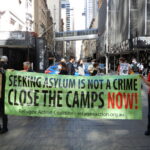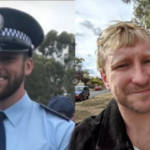The Use of Drones in Different Situations: Should There Be Greater Legal Clarity?

It started with smartphones. Within the space of a short few years, virtually everyone now has the ability to record and photograph other people at any time and in any place. Although smartphones have raised a number of privacy concerns, most people have accepted them. But new technology means that we can now potentially be filmed even in the privacy of our own backyards, without our knowledge.
Drones, or remotely piloted aircraft, are becoming increasingly popular with private individuals, companies and government agencies. Often considered to be a safe and cost-effective way to take aerial photographs, make observations, and search for missing persons or objects, there’s no denying that drones have a place in our society, but there are also certain pitfalls that go alongside the use of these remote-controlled devices.
The use of drones has become so widespread recently that there have been a number of calls for privacy laws to be changed so as to ensure that the privacy of ordinary people isn’t being invaded by the use of drones, especially when they are used by government agencies like the police force, or by the media.
What does the law say?
Filming people in public is not against the law, as long as the person filming is not being offensive, engaging in harassment or planning to use the footage for commercial purposes, but the use of drones means that people can not only be recorded when they are in public, but also when they are in the privacy of their own backyards and on private property.
While a person can be charged for filming you in your backyard while standing on your property, that law doesn’t apply to drones.
Although noisy, drones can also fly high above and can be very difficult to spot, so you may not even be aware of their presence. The use of drones by civilian organisations has already caused problems and led to numerous complaints by individuals, including Melbourne resident Mandy Lingard who was unknowingly photographed sunbathing in her backyard in a G-string by a real estate agency drone. The image was then used to advertise a nearby property on the internet, billboards and in a real estate magazine.
Concerns about authorities using drones
As well as being used by companies and individuals, the increasing use of drones by law enforcement agencies has led to a number of concerns from civil libertarians about the lack of clarity and regulations surrounding their use.
NSW Police has recently announced a trial of the use of drones in search and rescue work.
Although Assistant Commissioner Mal Lanyon stated that the drones will only be used for emergencies and search and rescue operations, as a substitute for helicopters and fixed wing aircraft, without clear guidelines and a legal framework in place there are concerns that drones could be misused.
The president of the NSW Council for Civil Liberties, Stephen Blanks, suggests that there should be strict laws for police use of drones which state in which situations drones can be used, how long recordings can be kept for, and how people are notified that they have been recorded or that drones are recording in their area.
What do current laws do to protect us against drones?
Current privacy laws are generally considered completely insufficient to protect the public against invasions of privacy by drones. One of the issues is that laws vary from state to state and there aren’t any standardised laws that could apply across the whole country.
In NSW, there are laws surrounding how high drones can fly and stating that they must be in sight at all times. Unfortunately there have also been a number of reported incidents where this hasn’t been the case, and there is little that deals with photographing or filming people. There is also a lack of ability to seek legal redress for breaches of privacy that have been committed against members of the public by the use of drones.
What changes have been suggested?
The Australian Law Reform Commission has recently released a report with a number of suggested changes to protect against serious invasions of privacy such as those that could be potentially caused by drones. The ALRC suggests that laws be created under the Commonwealth Act so that they can apply to all states rather than being state specific.
Some of the changes that are suggested in the report include making surveillance legislation technology neutral. Currently much of the legislation that is in place is different for optical surveillance devices, listening devices and data surveillance devices. This means that when new forms of technology come into effect, the laws are often lacking.
The ALRC has also recommended that avenues of compensation be created through the civil court system, which could act as a deterrent and enable people to seek compensation in cases where criminal offences are not considered to be appropriate. It would also mean cases could be settled more quickly and with fewer costs.
In another suggestion, the ALRC has recommended that the current exceptions around participant monitoring be removed. This would mean that it would be against the law to record a conversation or activity, even when the people doing the recording are themselves participating in it.
There would be exceptions for certain situations where the recording could be demonstrated to be in the public interest.
Whatever changes are made, it has been suggested that they be brought into effect by the middle of this year. Drones are becoming increasingly more affordable which means their use is likely to be even more widespread, both in government organisations and private organisations and individuals in the near future. It’s important that privacy is protected, especially when there is potential for police and other government organisations to misuse them.






